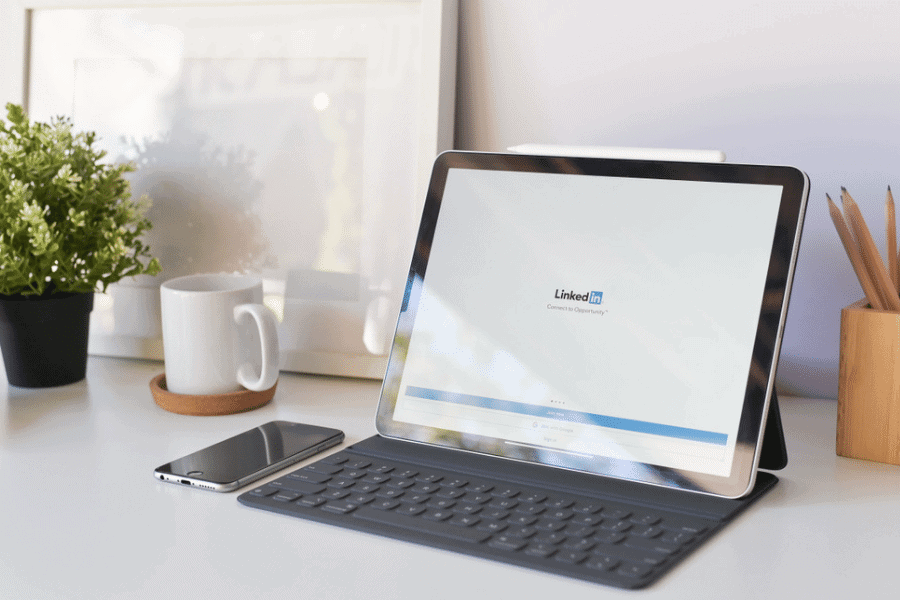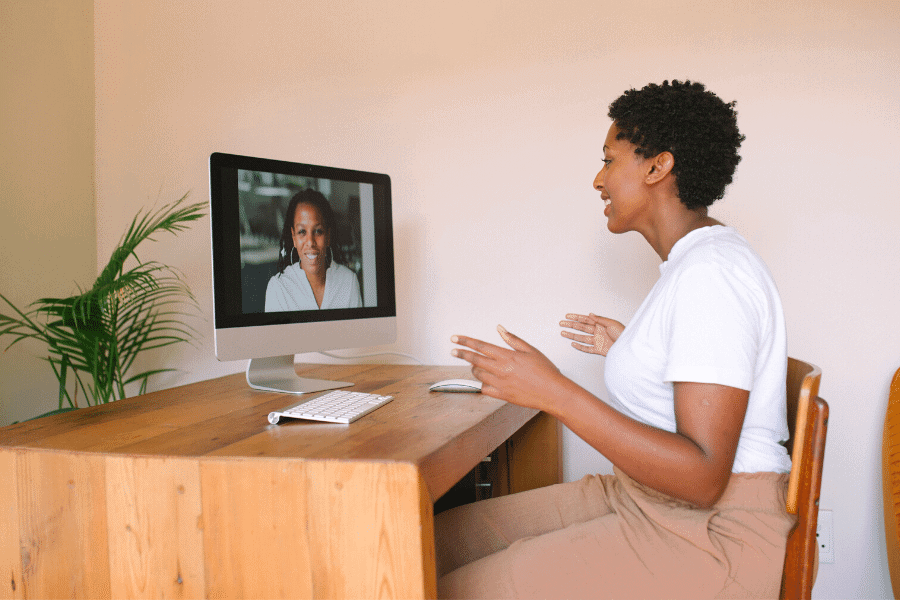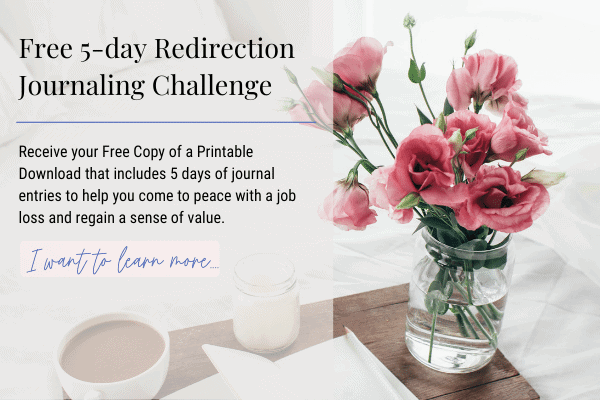This post lists 7 actionable tips on how to prepare for a career change at any stage or age.

It’s not if you will have a career change, but when will you have a career change. And when that time comes, will you be prepared to navigate a career pivot with minimal disruption to your life?
When Indeed surveyed their users, close to 65% said they were thinking of making a career change. All due to not feeling challenged, motivated, and wanting more flexibility with their time. The participants said they were willing to make less money to reposition their lives with a more fulfilling role. And 49% of the users were in the middle of a career change.
So, deciding to change careers happens more commonly than we think. Totally going against what we were told not to do by our parents or mentors. But in their defense, the cautionary advice of staying in a job or with a company was to achieve financial security and to receive benefits for a lifetime.
But staying loyal to a company doesn't guarantee job security, like what our parents may have experienced in their career. Each industry, company, or role is not immune to a disruptive change that could lead to a layoff, furlough, or change of responsibilities in a role.
No one has a magical ball to tell us what will happen to our careers in the future, but being prepared for a career change is all within our control.
This is the article I wish I would have read in my 30’s to prepare me for a career change in my 40’s. But it is not too late for mid-career people- you can start taking action today!
Here is a list of 7 actionable steps you can start today to prepare you for a career change in the future.
Brag Folder: Save Your Career Receipts
Did you keep track of the time when you helped someone on your team finish that project at the last hour? Or when you successfully saved the company 22% in profits by reorganizing the archaic system. Maybe you have recorded the big moments on your year-end review, but certainly not the tiny moments that have added up to the valuable professional you are today.

Keeping track of all of these moments in a desktop folder or keeping notes on your phone is the first step of building an inventory of big and small moments in your professional career. This collection of data will help you later to define the value you provide to others.
I am not suggesting copying your company’s financial reports and sending them to your personal desktop, but rather write a quick summary about the project when it is fresh in your mind! Make sure to include quantitative data points and always write out the situation, task, action, and results (STAR Method) from the project or situation.
Here are the steps to build a Brag Folder:
- Label a new folder on your desktop: “Good Job!”, “Nice Work!”, “You Got This!”
- Set-up the folder on your work or home desktop. (If it’s easier for you to have the brag folder on your work desktop, just make sure to email your recordings to your personal email every month or quarter.)
- Save emails, notes, and year-end reviews to this folder.
- Keep a running note on your smartphone for the tiny moments of interactions with your team. This will help build data on your communication and soft skills.
Build a Personal Brand
If I were to ask you “Tell me more about your personal brand”- would you know how to answer this? Or would you experience a moment of panic and confusion, then proceed to look up what personal branding is on Google?
In a simple definition, a personal brand is your professional reputation online. (If you want to learn more about personal branding, you can save this article and read it later.)
What you post and share online supports and shapes your personal brand.
As Personal Branding Coach, Darine BenAmara shares on her LinkedIn Post:
“Creating an experience for your audience and positioning yourself as an authority in your industry.”
Action steps to start shaping your personal brand:
- Be intentional with your online posts- especially on LinkedIn (more on that below).
- Share your passion for a hobby, activity, or philanthropic and voluntary activities online.
- Post a video or publish an online article on a subject matter that showcases your expertise or experience.
LinkedIn: Best Tool for Career Change
Are you visiting LinkedIn once or twice a month to only scan the feed or to look for a new job? If your answer is yes, then you are not taking advantage of all the possibilities this platform has to offer!

LinkedIn is home to over 700 million professionals. With this many members, the possibility of meeting the right connection for your future career move is just a few clicks away.
But in order for your reach and connections to grow, you need to take action:
- Start to engage in people’s posts. Comment or add a reaction.
- Follow people that pique your interest within your industry or beyond.
- Follow organizations and companies that you admire or want to learn more about.
- Start to post 2-3 times a week.
The more active you are on LinkedIn, the better chance you will have to connect and meet new people beyond your 1st connections and inner network.
Know Your Personal Strengths
Knowing your personal and professional strengths may not seem obvious to you. And rarely do we get feedback about our personal strengths from people. Has anyone ever asked their family, friends, and colleagues this question?

Taking a personal strengths evaluation assessment or test is a great way to highlight and learn about your strongest characteristics and behaviors. Knowing this information about yourself could help shift your perspective around the choices you make in your career. As certified CliftonStrengths Coach, Jennifer Bassman Rogers shares:
"Knowing your strengths, what you are best at is like having the key to your freedom and success. When you know your strengths, you can make better decisions because you have a better idea of what kind of work is a fit for your talents".
A list of the top personal strengths assessment and tests:
Nurture Your Professional Relationships
There is a difference between networking and nurturing professional relationships. Networking is based on a transactional relationship.

Person “A” meets Person “B”. Exchanging information to help each other through a business transaction. The interaction can be incredibly friendly, but not intended to invest the time to get to know each other on a deeper level.
Whereas nurturing a professional relationship with no transactional strings attached, and only with intentions of building a long-term friendship, will change your network into a quality net worth of connections.
What does nurturing a professional look like?
- Sending a text or email on their birthday.
- Catching up over zoom or coffee
- Including them in your holiday card list
Learn More From Informational Interviews
Before you make any career-changing moves, requesting an informational interview will help provide clarity and a deeper understanding of what it is like to work in a new industry or role.

Hearing a first-hand perspective about a role in a specific company or industry will help fill in the gaps that you will not be able to find online.
Ways to find your next informational interview:
- Ask your family and friends if they know of anyone they can help connect you with
- Type in keywords related to the role or industry on LinkedIn. You can filter the results by people, companies, or posts.
InsiderTip:
The questions you ask in an informational interview should be intentional and not just a casual conversation. You want to ask specific questions to help you get the clarity you need. Here is a list of 21 questions to ask during an informational interview.
Hire a Career Coach
If I wanted to participate and compete in the famous Iron Man Race, I would need to hire a coach who can mentally prepare me, get me physically ready, and hold me accountable, every step of the way.

When preparing for a career change, it is OK to call in experts to help you navigate the different stages of a career change. Hiring a career coach will provide you with 1:1 consultation and guidance to avoid any friction or disruption in your personal life.
Questions to help you find the right Career Coach for you:
- What is your coaching style?
- How responsive are you?
- Can you share a client story similar to mine?
- Can you help define what success would look like?
I hope these 7 tips will start to shift your perspective on how you view and take action on your career planning. You may not know what lies ahead in the future, but you can be well-prepared to take your career wherever you want to lead it.
Are you in the middle of a career change or planning for one later down the road? Share your story and thoughts below. We want to support you!






